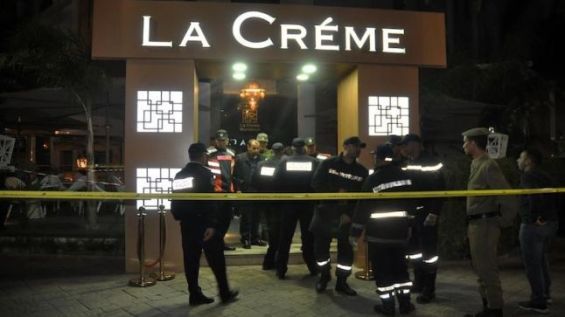Two Dutch hitmen, sentenced to death by a Moroccan court for their involvement in a 2017 shooting at Café La Crème in Marrakech, may have their sentences reconsidered by the judges. The men, known as the «Rasta shooters», were convicted after being hired by Dutch-Moroccan drug lord Ridouan Taghi to eliminate one of his rivals in November 2017.
Their plans went awry when they mistakenly shot the son of a senior Moroccan judge who was seated on the café’s terrace. The case of the two men, identified as Shadyone S. (32) and Edwin R.M. (28), was reportedly referred by Morocco’s highest court to a Casablanca court in July, according to Dutch newspaper De Telegraaf, which cited their lawyer.
Judges at the kingdom’s highest court believe that the cooperation of the two Dutch hitmen was not adequately considered in their conviction on appeal, their lawyer Bob Kaarls told the same source. Despite their confession and admission of who was behind the murder, this was not factored into their sentencing as a mitigating circumstance.
«Rasta shooters» in court again
This development gives the two men a chance to receive a commuted sentence, such as life in prison or a lesser term, instead of the death sentence. They have spent seven years in prison in Morocco, on death row. Their status as death row inmates has made them ineligible for extradition to the Netherlands to serve their sentences there.
The Rasta shooters were arrested shortly after the attack that shocked Marrakech. Initially, they denied involvement but later cooperated with authorities, revealing that their intended target was Moroccan-Dutchman Mustapha el F., alias Moes «No Limits», who narrowly escaped death by switching seats just before the attack. El F. was also later arrested.
Ridouan Taghi, the man allegedly behind the murder, was arrested in December 2019 after hiding in Dubai since 2016. He was apprehended through a joint operation involving Moroccan, Emirati, and Dutch police and was extradited to the Netherlands on the same month. On February 27, 2024, Taghi was convicted and sentenced to life imprisonment.




 chargement...
chargement...












